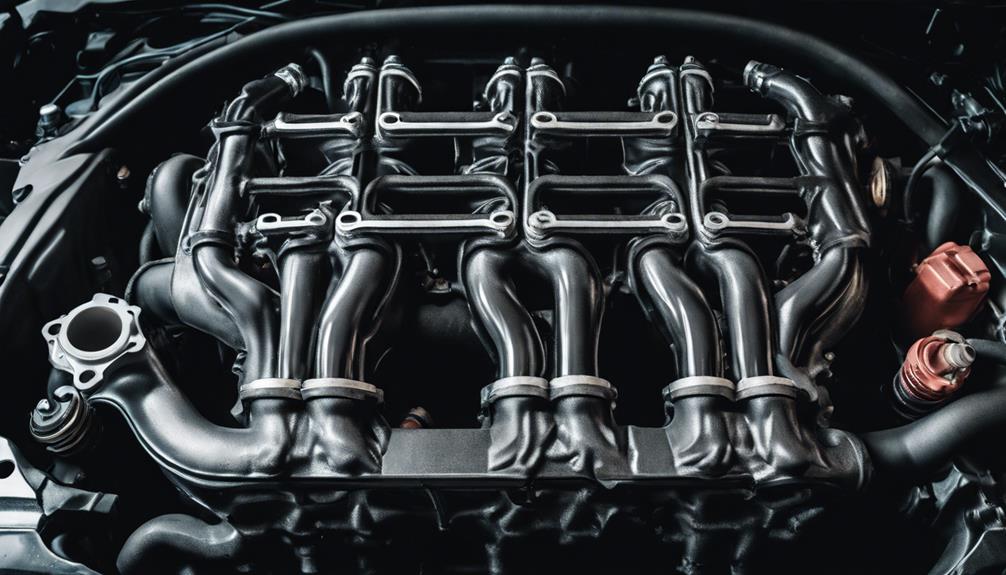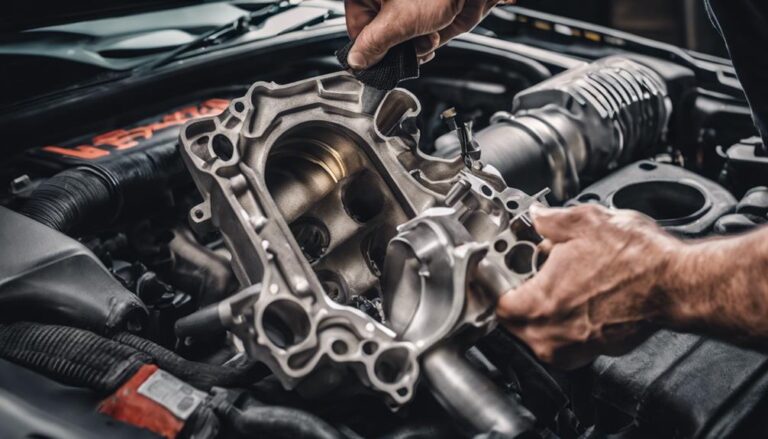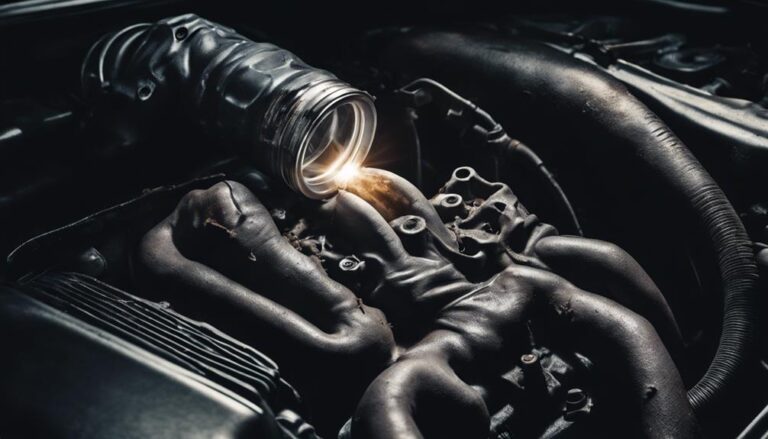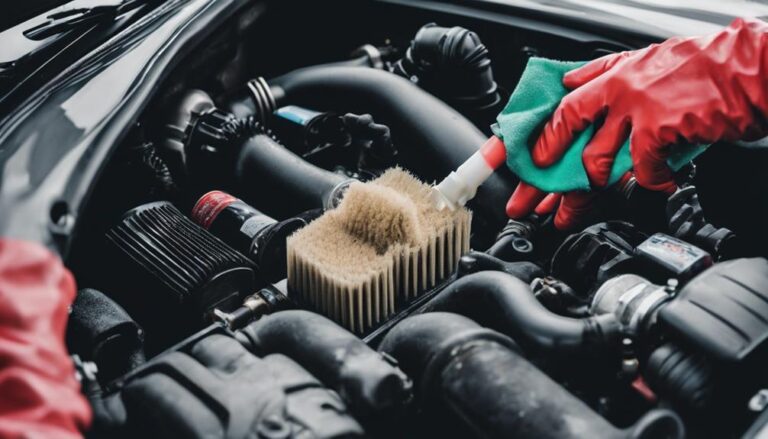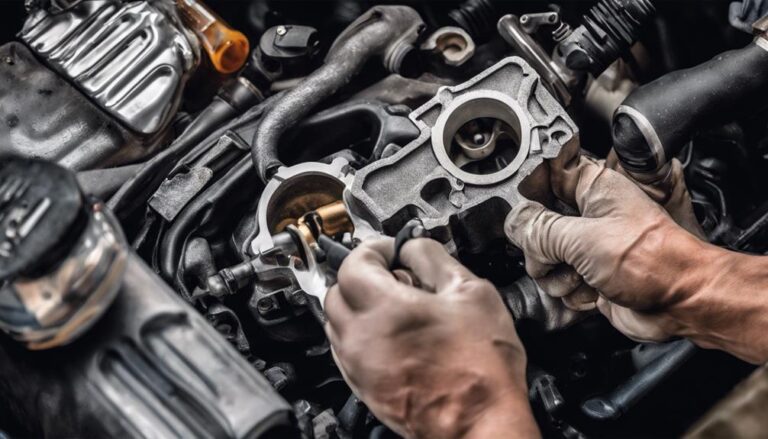Preventing Intake Manifold Carbon Buildup in Cars
Did you know that carbon buildup in your car's intake manifold can greatly affect its performance? Understanding the factors that contribute to this issue is essential for maintaining your vehicle's efficiency and longevity.
By exploring the impact of poor fuel quality, the effects of short trips, the role of engine oil quality, the influence of driving habits, and the importance of regular maintenance, you can proactively address this common problem.
Stay tuned to discover practical tips on how to prevent intake manifold carbon buildup and keep your car running smoothly.
Key Takeaways
- Use high-quality fuel with additives to prevent carbon deposits and maintain engine performance.
- Opt for longer journeys over short trips to reduce carbon buildup in the intake manifold.
- Ensure regular oil changes with quality oil to prevent carbon and sludge accumulation.
- Practice proper warm-up, idle time, and consistent driving habits to minimize intake system carbon buildup.
Impact of Poor Fuel Quality
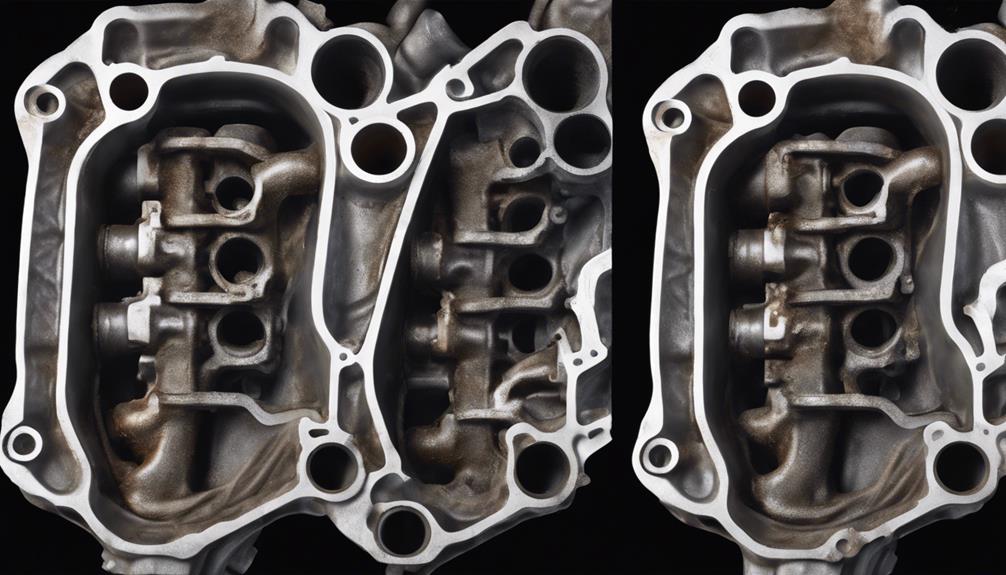
When poor fuel quality is used in a car, it can greatly contribute to carbon buildup in the intake manifolds. Fuel additives are essential to maintain optimal engine performance. These additives, when combined with high-quality fuel, help prevent carbon deposits from forming in critical areas of the engine, such as the intake manifold.
Ignition timing plays a vital role in the combustion process. When fuel quality is compromised, ignition timing can be affected, leading to incomplete combustion. Incomplete combustion releases more carbon particles that can accumulate in the intake manifold over time.
To prevent carbon buildup due to poor fuel quality, it's important to use fuel additives regularly and make sure that the ignition timing is correctly set. By taking these preventive measures, you can maintain a clean intake manifold, improve engine efficiency, and prolong the life of your vehicle. Remember, staying proactive in maintaining fuel quality and ignition timing will help you avoid costly repairs down the road.
Effects of Short Trips
Short trips can negatively impact the efficiency of a car's intake manifold due to insufficient heating and combustion processes. When you take short trips, your engine often doesn't reach its best operating temperature, leading to incomplete fuel combustion. This incomplete combustion can result in carbon buildup within the intake manifold, causing issues such as idling problems and reduced engine performance.
In addition, short trips contribute to more frequent cold starts, where the engine operates at a lower temperature than ideal. Cold starts are known to produce higher levels of harmful emissions and increased fuel consumption due to the engine running in a less efficient state. This inefficient combustion process during cold starts can accelerate the formation of carbon deposits in the intake manifold, exacerbating the risk of idling problems and decreased engine efficiency.
To mitigate the effects of short trips on your car's intake manifold, consider combining multiple short trips into a single longer journey when possible. This allows the engine to reach its best operating temperature, promoting complete combustion and reducing the likelihood of carbon buildup issues.
Role of Engine Oil Quality
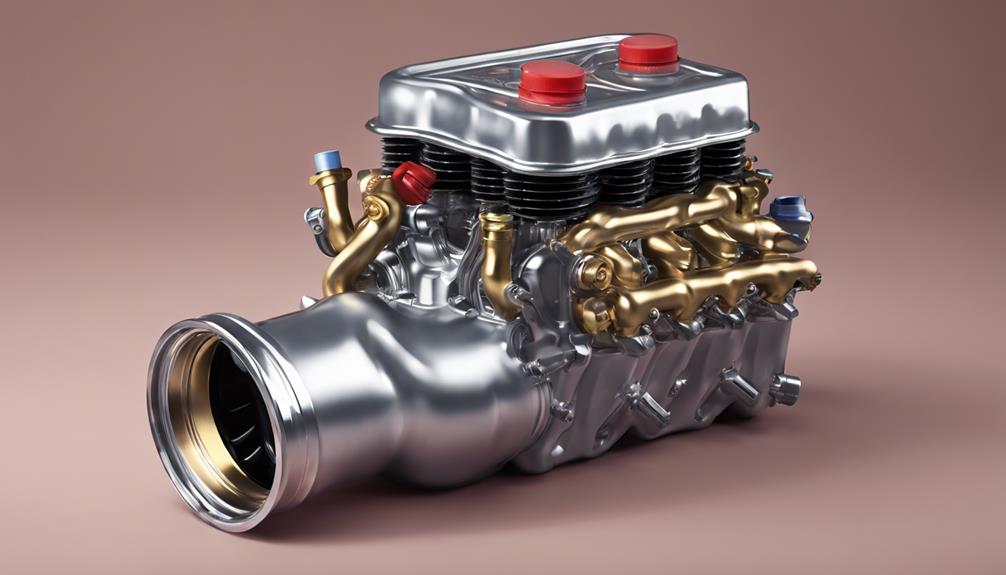
Frequent short trips can lead to carbon buildup in your car's intake manifold. Engine oil quality plays a vital role in preventing carbon buildup by affecting engine temperature and lubrication properties. Here are four key points to contemplate:
- Viscosity: Opt for engine oils with the right viscosity grade to maintain proper lubrication. This guarantees that engine components move smoothly, reducing the risk of carbon deposits forming due to friction.
- Additive Package: High-quality oils contain additives that help clean the engine and prevent the accumulation of carbon and sludge. These additives enhance the oil's ability to protect against deposits.
- Thermal Stability: Engine oils with good thermal stability can withstand high engine temperatures, reducing the likelihood of carbon buildup. Choose oils designed to handle elevated temperatures effectively.
- Change Intervals: Regularly changing the engine oil as per the manufacturer's recommendations helps maintain its lubrication properties, preventing carbon buildup due to degraded oil. Adhering to the recommended change intervals is essential for best engine performance and longevity.
Influence of Driving Habits
To mitigate carbon buildup in car intake manifolds, understanding your driving habits is essential for understanding their influence on this issue. Proper warm-up procedures are vital as they help optimize fuel combustion and reduce the formation of carbon deposits. When starting your vehicle, allow it to idle for a few moments before driving off. This allows the engine oil to circulate properly and reach all necessary components, minimizing wear and carbon buildup.
Highway driving can also play a significant role in preventing intake manifold carbon buildup. Sustained high speeds and consistent engine revs during highway driving help burn off carbon deposits that may have accumulated. This type of driving also keeps the engine operating at a prime temperature, which is beneficial for preventing the condensation of harmful substances in the intake system.
Importance of Regular Maintenance
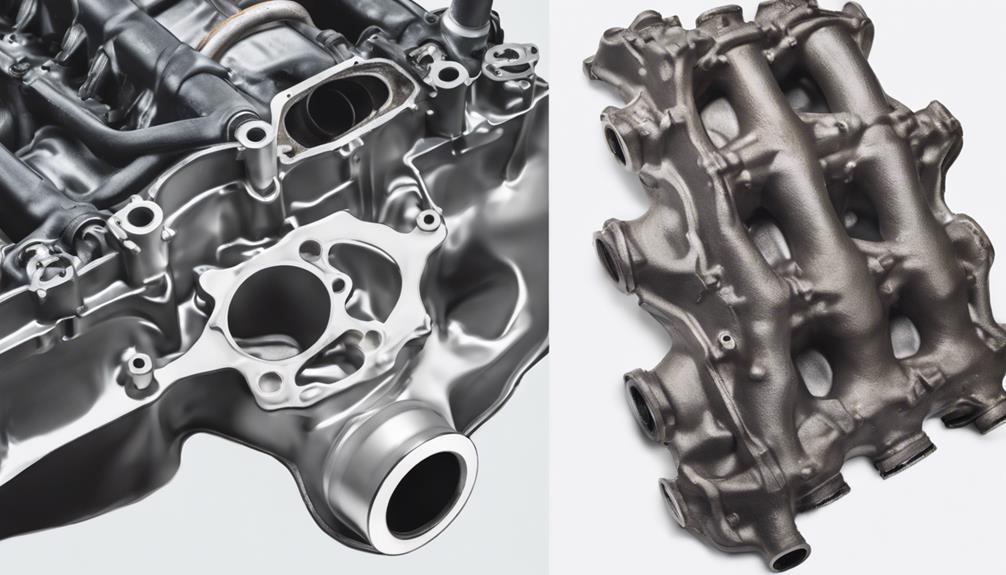
Regular maintenance plays a pivotal role in preventing carbon buildup in car intake manifolds. To keep your intake manifold clean and guarantee peak engine performance, follow these essential maintenance practices:
- Regular Filter Maintenance: Changing air filters at recommended intervals prevents debris and contaminants from entering the intake system, reducing the chances of carbon buildup. Dirty filters can allow particles to accumulate in the intake manifold, leading to deposit formation.
- Scheduled Inspections: Periodic inspections of the intake system can help catch early signs of carbon buildup. By checking for any residue or blockages in the intake manifold, you can address issues promptly before they escalate.
- Fuel Additives: Using fuel additives designed to clean the intake manifold can help break down carbon deposits and prevent further buildup. Additives can improve fuel combustion efficiency, reducing the formation of carbon deposits in the intake system.
- Throttle Body Cleaning: Regular cleaning of the throttle body eliminates carbon deposits that can affect airflow and lead to intake manifold buildup. Keeping the throttle body clean ensures smooth engine operation and reduces the risk of carbon accumulation.
Frequently Asked Questions
Can Using Fuel Additives Help Prevent Intake Manifold Carbon Buildup in Cars?
Using fuel additives can help prevent intake manifold carbon buildup in cars. They improve fuel efficiency and aid emissions control by cleaning the intake system. Regular use can maintain engine performance and reduce harmful emissions.
What Are the Potential Drawbacks of Using Fuel Cleaners or Additives for Preventing Carbon Buildup?
When considering using fuel cleaners or additives to prevent carbon buildup, it's important to remember that effectiveness varies. Side effects, like potential damage to oxygen sensors, can occur. Before use, research and consult a professional.
How Does the Design of the Intake Manifold Impact Carbon Buildup in Cars?
When considering the impact of intake manifold design on carbon buildup in cars, the material composition and airflow design play vital roles in optimizing heat dissipation and vacuum pressure. Proper engineering can minimize carbon accumulation.
Are There Any Specific Engine Technologies or Features That Can Help Reduce Intake Manifold Carbon Buildup?
When it comes to reducing intake manifold carbon buildup, certain engine technologies like optimized engine tuning and efficient air filtration systems play important roles. Enhancing airflow circulation can greatly minimize carbon deposits, promoting engine longevity.
How Does the Type of Spark Plugs Used in a Car Affect Carbon Buildup in the Intake Manifold?
Using the right spark plugs in your car can greatly impact carbon buildup in the intake manifold. The type of spark plug affects ignition efficiency, which in turn influences combustion quality and the formation of carbon deposits.
Conclusion
You now understand the critical factors contributing to intake manifold carbon buildup in cars.
By addressing poor fuel quality, short trips, engine oil quality, driving habits, and regular maintenance, you can prevent this issue from occurring.
Take control of your vehicle's health and longevity by implementing these proactive measures.
Don't let carbon buildup compromise your engine's performance and efficiency.
Stay diligent in your maintenance routine to guarantee functionality and prevent costly repairs in the future.

